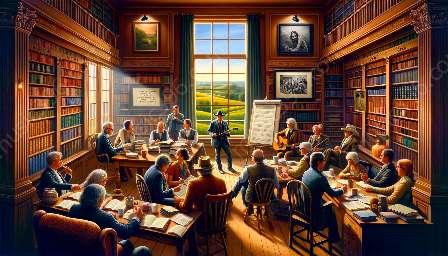Country music has played a vital role in addressing social and economic disparities in society, with its powerful storytelling and unique ability to reflect the struggles and triumphs of everyday people. This content delves into the influence and impact of country music on society, focusing on how it has addressed social and economic disparities and its significant role in shaping cultural norms and values.
Influence and Impact of Country Music on Society
Country music, with its roots in rural and working-class communities, has served as a platform for expressing the experiences of individuals facing social and economic challenges. Through its lyrics and melodies, country music has provided a voice for those grappling with inequality, poverty, and hardship, shedding light on the realities of life often overlooked in mainstream culture.
Authentic Storytelling
One of the key ways that country music has addressed social and economic disparities is through its authentic storytelling. Artists in the genre often draw from their own experiences or the experiences of those around them, creating narratives that resonate with audiences from diverse backgrounds. This raw and honest approach has allowed country music to bridge the gap between different social and economic groups, fostering empathy and understanding.
Representation of Working-Class Struggles
Country music has been instrumental in representing the struggles of the working class, giving a voice to individuals facing economic hardship and adversity. The genre's focus on blue-collar themes and everyday challenges has facilitated a deeper understanding of the realities faced by many in society, shedding light on issues such as unemployment, financial instability, and the impact of economic downturns on families and communities.
Shaping Cultural Norms and Values
Country music has also played a significant role in shaping cultural norms and values, contributing to a broader conversation about social and economic disparities. Through its songs and narratives, the genre has influenced perceptions and attitudes, challenging existing beliefs and advocating for social change.
Advocacy for Social Justice
Many country artists have used their platform to advocate for social justice and equity, addressing issues such as poverty, access to healthcare, and inequality. By aligning with causes that seek to address social and economic disparities, country music has raised awareness and instigated meaningful conversations, prompting listeners to reevaluate their views and consider the lived experiences of others.
Community Building and Solidarity
Country music has fostered a sense of community and solidarity, bringing people together through shared experiences and common struggles. The genre's emphasis on unity and support has provided a space for individuals facing social and economic disparities to find connection and belonging, creating a sense of empowerment and resilience.























